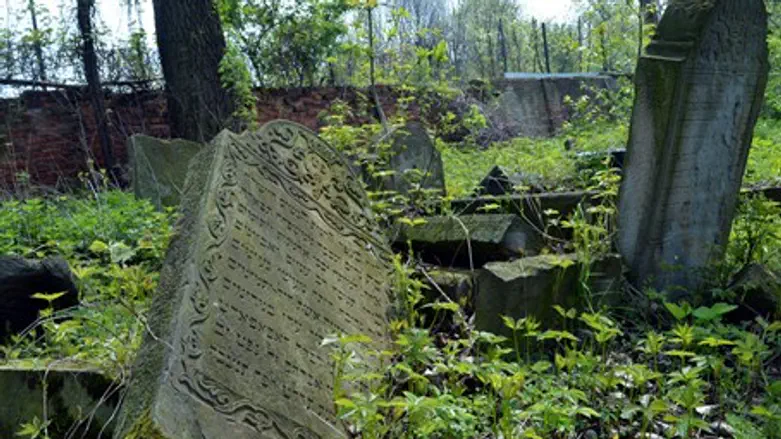
(JTA) -- Polish clergy and researchers will hold a seminar in Kielce about a historically significant pogrom in which locals killed Holocaust survivors in that city 70 years ago.
Occurring amid an acrimonious debate in Poland on local complicity in the Holocaust and the attention it merits, the conference planned for July in Kielce, 110 miles south of Warsaw, aims to promote “the spiritual concept of forgiveness” in relation to the 1946 murder of 42 Jews, Poland’s chief rabbi, Michael Schudrich, told JTA on Wednesday.
Titled "Memory, Dialogue, Reconciliation," the seminar is being organized on the pogrom’s anniversary by Bogdan Bialek, a writer and political activist who is also president of the Jan Karski Society -- an anti-racism group named after an officer of the Polish underground who risked his life to provide the Allies with evidence of the Nazi genocide.
Taking place shortly after the genocide in Poland, the pogrom spurred a wave of emigration by survivors of the Holocaust who felt unsafe even after it ended, Schudrich said. Far from an isolated incident, it is the most famous pogrom in a series of attacks that left 1,500 to 2,000 Jews dead after the Holocaust had ended.
Kielce, Schudrich added, “remains a sensitive and painful subject in Poland.”
In recent months, Poland’s center-right government has faced international criticism for statements and actions by officials that are seen as unfavorable to open discussions about the complicity of some Poles in the killing of Jews. At the same time, officials have pushed through commemorations of Poles who saved Jews from the Holocaust in a manner deemed by some critics as excessive.
Jan Gross, a Polish-American professor from Princeton University, was recently questioned by prosecutors on suspicion of violating Poland’s law against “insulting the Polish nation” because he said that more Jews than Germans died at the hands of Poles during World War II. The probe followed public petitions demanding action against Gross.
In February, the office of the president of Poland ordered an examination of the possibility of withdrawing a state honor given to Gross, who wrote a landmark book on another pogrom by Poles against Jews in Jedwabne in 1941.
Among the participants expected at the Kielce seminar is former Prime Minister Włodzimierz Cimoszewicz and Ewa Junczyk-Ziomecka, a former state secretary who also served as the Polish consul general in New York.
Schudrich said he hoped the event would “encourage those who need to seek forgiveness for their actions to do so” but added that, for him, “the event in Kielce is not about identifying the guilty but grieving together for the dead.”
The event is necessary to bridge gaps in how Jews and non-Jews relate to the Kielce pogrom, Schudrich said.
“The Jewish view is of indignation over the murder of Holocaust victims. But the discussion in Polish society is more about who actually perpetrated the killings: communists, anti-communists, etc.,” he added. “I can understand that, but now is a time to look at the victims.”